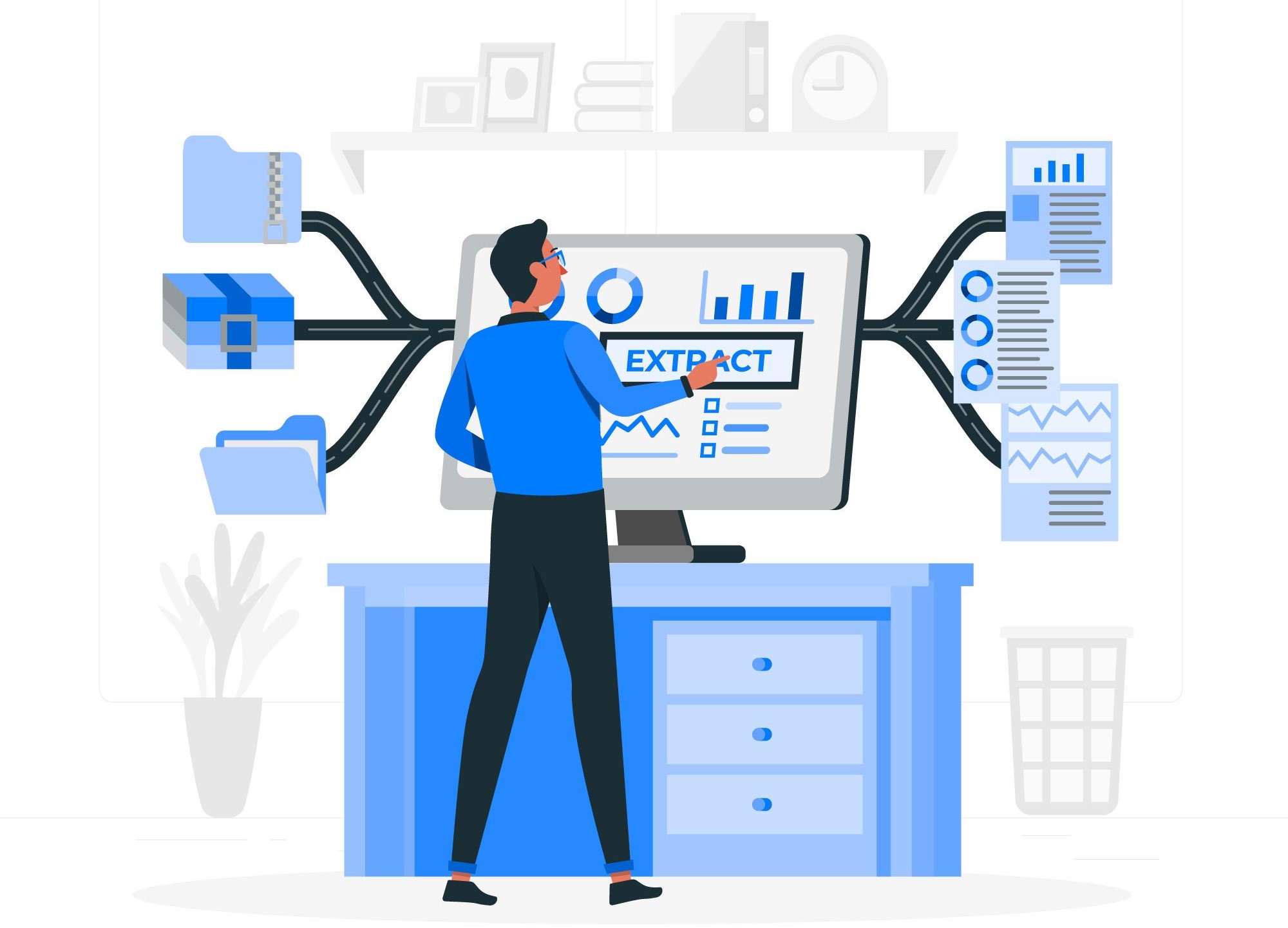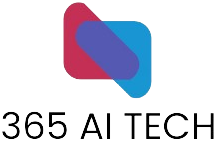Project Management Automation
In the dynamic world of project management, the integration of Artificial Intelligence (AI) is not just an innovation but a necessity for staying competitive and efficient. This blog delves into how AI is redefining project management, addressing the challenges of traditional methods, and offering quantifiable benefits that can transform project outcomes.

| Use Case for Project Management | Challenges in Project Management | Benefits of AI for the Use Case | Features of AI Solution for the Use Case | Quantitative Benefits in Terms of Revenue, Time, and Cost |
|---|---|---|---|---|
| Task Prioritization and Scheduling | Balancing workload, meeting deadlines, and prioritizing tasks effectively. | AI can analyze project data to identify critical tasks and optimize schedules, improving efficiency. | Automated task prioritization based on deadlines and dependencies, dynamic scheduling adjustments based on real-time progress and changes. | Up to 30% reduction in project timelines, leading to faster project delivery and increased capacity for additional projects. |
| Risk Management | Identifying, assessing, and mitigating potential risks in a timely manner. | AI can predict potential risks by analyzing past project data, enabling proactive risk mitigation. | Predictive analytics for risk identification, risk assessment models to evaluate impact and likelihood, automated risk mitigation recommendations. | Reduction in risk-related costs by up to 25%, minimizing budget overruns and project delays. |
| Resource Allocation | Optimizing the use of limited resources (time, budget, manpower) across projects. | AI can optimize resource distribution based on project requirements and constraints, maximizing utilization. | AI-driven resource optimization algorithms, real-time resource allocation adjustments, forecasting for future resource needs. | Improved resource utilization can lead to a 20% decrease in operational costs, enhancing project profitability. |
| Project Monitoring and Reporting | Keeping track of project progress and performance against benchmarks. | AI can automate data collection and analysis for real-time insights, reducing manual reporting effort. | Automated progress tracking and anomaly detection, generation of real-time reports and dashboards, predictive analytics for project outcomes. | Increases project efficiency by up to 15%, reducing the need for manual monitoring and enabling more accurate project forecasting. |
| Communication and Collaboration | Facilitating effective communication among diverse and geographically dispersed team members. | AI can enhance communication through smart recommendations, language translation, and sentiment analysis. | AI-powered communication tools for real-time translation and sentiment analysis, recommendation systems for efficient collaboration, automated meeting summaries and action items. | Enhances team productivity by up to 20%, leading to shorter project cycles and improved team satisfaction. |
| Quality Control | Ensuring the deliverables meet the required standards and specifications. | AI can continuously monitor outputs against quality benchmarks and predict quality issues before they arise. | Continuous quality monitoring systems, predictive models for quality assurance, automated feedback loops for quality improvement. | Reduction in defect rates by up to 30%, significantly lowering rework costs and enhancing customer satisfaction. |
What is AI in Project Management?
AI in project management refers to the application of artificial intelligence technologies, such as machine learning, natural language processing, and predictive analytics, to enhance and automate project management tasks. These technologies enable project managers to make data-driven decisions, optimize workflows, and predict project outcomes with greater accuracy.
How can AI help in Project Management?
AI’s impact on project management is multifaceted, offering solutions that range from automating mundane tasks to providing strategic insights:
AI for Automation: By taking over repetitive, data-driven tasks, AI allows project managers to focus on higher-value activities, such as strategic planning and team management. This not only increases efficiency but also enhances job satisfaction by reducing grunt work.
AI for Intelligent Assistance: AI systems can quickly provide answers to complex project queries, from risk assessments to resource allocation, thereby accelerating decision-making processes and ensuring timely project progress.
AI for Predictive Analytics: Utilizing historical data, AI can forecast future project trends, identify potential bottlenecks, and suggest mitigative strategies, thereby enhancing project planning and execution.
AI for Strategic Partnership: AI facilitates better collaboration among project stakeholders by integrating disparate systems and data sources, ensuring that all parties have access to real-time project insights.
AI for Risk Management: Through advanced data analysis, AI helps in identifying potential project risks and opportunities, allowing project teams to proactively address issues before they escalate.
AI for Cost Management: AI’s predictive capabilities extend to budget management, enabling project managers to optimize resource allocation, reduce wastage, and predict financial outcomes more accurately.
Challenges in Manual Project Management
The challenges inherent in manual project management are multifaceted, often leading to inefficiencies that can impact the overall success and delivery of projects. Here’s a more detailed look at these challenges:
Time-Consuming Processes: Manual project management involves a lot of paperwork and hands-on activities such as updating schedules, tracking progress, and compiling reports. These tasks are not only labor-intensive but also consume a significant amount of valuable time that could be better spent on strategic planning and execution.
Limited Data Analysis Capabilities: Traditional project management methods rely heavily on human analysis, which can be constrained by the volume and complexity of data. This limitation hinders the ability to derive deep insights from project data, affecting decision-making and strategy development.
Reactive Approach to Problem-Solving: Manual systems tend to be more reactive, addressing issues as they arise rather than anticipating and mitigating them in advance. This approach can lead to delays and additional costs as the project team scrambles to resolve unforeseen problems.
Risk of Human Error: Manual project management is prone to errors, from data entry mistakes to oversight in schedule updates. Such errors can compound over time, leading to significant discrepancies in project tracking and reporting.
Inefficient Communication: Coordinating tasks, updates, and feedback across a project team manually can lead to communication gaps and misunderstandings. This inefficiency can result in misaligned objectives, missed deadlines, and inconsistent project execution.
Difficulty in Resource Allocation: Without sophisticated tools, manually balancing workload and resource allocation can be challenging. This difficulty can result in overburdened team members, underutilized resources, and ultimately, reduced productivity.
Lack of Real-Time Visibility: Manual methods often lack the capability to provide real-time updates on project progress. This limitation can hinder timely decision-making and adjustments, potentially impacting project timelines and deliverables.
Scalability Issues: As projects grow in size and complexity, manual management methods can become overwhelmed, leading to breakdowns in process efficiency and effectiveness.
Cost Overruns: Inefficient processes and the inability to accurately forecast and mitigate risks can lead to unanticipated expenses, pushing projects over budget.
Addressing these challenges requires a strategic shift towards more advanced project management solutions that can automate routine tasks, provide actionable insights through data analysis, and enhance communication and collaboration across project teams.
Benefits of AI in Project Management
The integration of AI into project management brings a host of benefits:
Efficiency and Time Savings: AI can automate up to 40% of routine project management tasks, significantly freeing up project managers’ time.
Enhanced Decision Making: AI-driven insights provide a solid basis for making informed decisions, reducing the reliance on guesswork and intuition.
Risk Reduction: AI’s predictive analytics can reduce project risks by up to 35%, ensuring smoother project execution and delivery.
Cost Optimization: By streamlining project processes and optimizing resource utilization, AI can help reduce project costs by up to 20%, delivering a higher return on investment.
Real life case study
Real-life applications of AI in project management include IBM Watson’s capability to analyze vast data for decision-making, ProSymmetry’s Tempus Resource for optimized resource allocation, Siemens AG’s use of AI for accurate project forecasting, the construction industry’s adoption of predictive maintenance through AI to enhance efficiency, and Tesla’s AI-powered production planning to align with market demands. These applications demonstrate AI’s potential to streamline processes, improve decision-making, and enhance project outcomes across various industries.
Conclusion
The integration of AI into project management is transforming the field, making processes more efficient, decision-making more data-driven, and project outcomes more predictable and successful. As AI technologies continue to evolve, their potential to revolutionize project management will only increase.
365AI Tech is poised to revolutionize AI in project automation by leveraging cutting-edge AI technologies and expertise. With a focus on optimizing project management processes, 365AI Tech’s solutions are designed to automate routine tasks, provide actionable insights through predictive analytics, and enhance decision-making. This ensures projects are completed more efficiently, within budget, and to the highest standards, making 365AI Tech an essential partner for businesses looking to harness the power of AI in project management.
